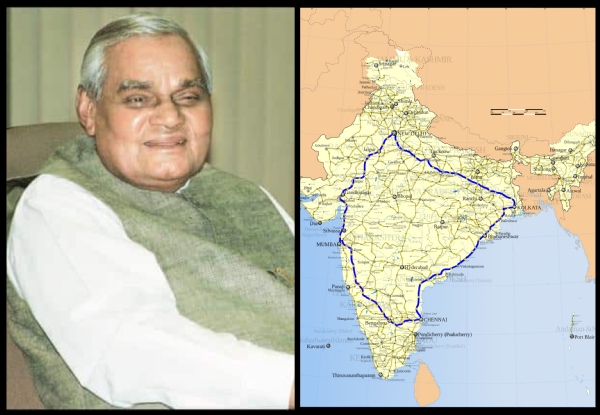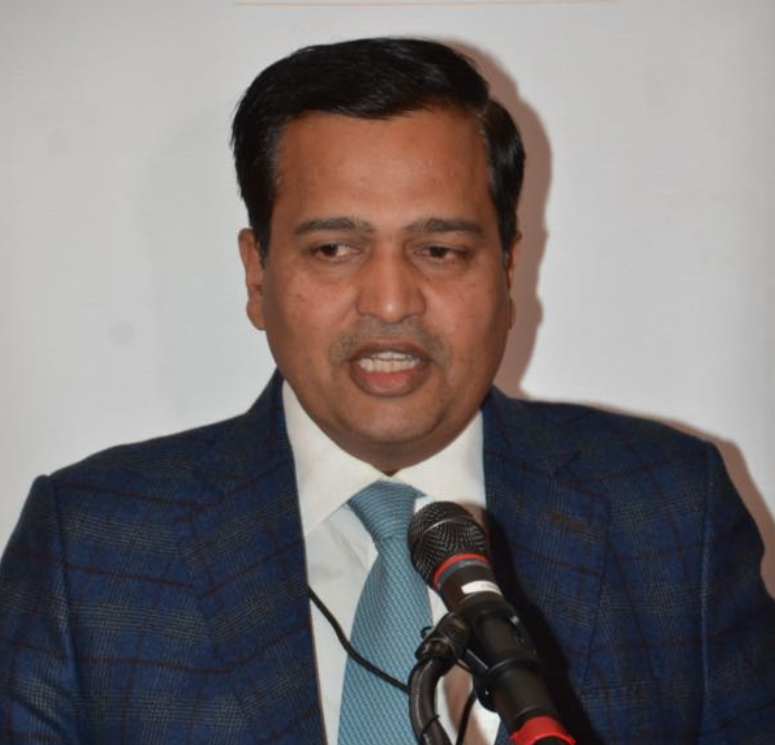Atal Bihari Vajpayee Ji: Father of India's Infrastructure Revolution
Atal Bihari Vajpayee Ji"s single biggest contribution which is often talked about is his biggest push for infrastructure which was seen never before.
Total Views |
India celebrates 25th December as Good Governance Day on the birth anniversary of Former Prime Minister Shri Atal Bihari Vajpayee. Soon we shall be celebrating his centenary birth anniversary. It is indeed very apt for government to declare Atalji’s (as he is fondly called by one and all) birthday as Good Governance Day because it is his visionary leadership that when India saw a major difference in Governance and development became political agenda. He was a visionary, statesman, taskmaster, staunch nationalist, and soft-hearted human being. It is through that combination that India saw things that have been never dreamt of. His bigger achievements were in economic policies. He took forward the economic reforms that started in the 90s. When UPA took over from NDA in 2004, the economy was booming—the GDP was above 8 percent, inflation was below 4 percent and foreign exchange reserves were highest till that time.

His single biggest contribution which is often talked about is his biggest push for infrastructure which was seen never before. It not only provided a better network for the movement of goods and people but it put India on the pedestal of growth and big dreams. The Golden Quadrilateral or “GQ” was former Prime Minister Atal Bihari Vajpayee’s first dream project and is considered the biggest infrastructure program in the highways sector in Independent India.
The National Highway Development program was largely based on the National Highway System of the US, he in 2001 launched the Golden Quadrilateral and the North-South & East-West Corridor projects to build 4/6 lane highways between four top metropolitan cities of Delhi, Mumbai, Chennai and Kolkata as well as from Srinagar to Kanyakumari and Porbandar to Silchar. He didn’t stop at announcing the Highway program, he knew exactly, if we wish to ensure the fruits of development reach the last man in rural India then we must develop arterial rural roads as well. It is with this vision he announced Pradhan Mantri Gram Sadak Yojana. In my view, this was an even bigger and more long-term impact he made on India.
Since independence, we have seen many such 5 year programs announce but very few had been implemented with the same zile. To ensure his vision is put into action he provided adequate funds by box solutions for financing the ambitious program by leaving cess on fuel. Which even today proves to be our major source of revenue for investing in our infrastructure. He also put in place a team of people with the right skills and attitude to implement programs of that magnitude. And the results were for all to see India saw more than 5000kms of highway construction during his tenure.
The impact of this program was not limited to highways alone, it had a cascading effect on the whole economy. Governments' many other programs were successful because this infrastructure build provided the necessary backbone. Sarv Shiksha Abhiyan was one such program that saw a reduction of over 60% in school dropout numbers. Another important impact it made was on Governance. India had seen most of the large ticket infra projects getting delayed because of multiple layers of decision-making and democratic approach in governance. It was for the first time a programmatic approach was adopted from approval to implementation. In one go cabinet approved the entire program including the financing model. This helped in speedy implementation. Which was contrary to the conventional style of governance. Subsequent to his tenure, the town's consecutive UPA regimes were gripped with policy paralysis.
Therefore it is in this context Shri Atal Bihari Vajpayee brought in the Governance part of Government. It is Governance that connects elected Government to people. In a real sense, he has been the father of Good Governance in India. India shall always remain indebted to him for his this contribution amongst many others.

His single biggest contribution which is often talked about is his biggest push for infrastructure which was seen never before. It not only provided a better network for the movement of goods and people but it put India on the pedestal of growth and big dreams. The Golden Quadrilateral or “GQ” was former Prime Minister Atal Bihari Vajpayee’s first dream project and is considered the biggest infrastructure program in the highways sector in Independent India.
The National Highway Development program was largely based on the National Highway System of the US, he in 2001 launched the Golden Quadrilateral and the North-South & East-West Corridor projects to build 4/6 lane highways between four top metropolitan cities of Delhi, Mumbai, Chennai and Kolkata as well as from Srinagar to Kanyakumari and Porbandar to Silchar. He didn’t stop at announcing the Highway program, he knew exactly, if we wish to ensure the fruits of development reach the last man in rural India then we must develop arterial rural roads as well. It is with this vision he announced Pradhan Mantri Gram Sadak Yojana. In my view, this was an even bigger and more long-term impact he made on India.
Since independence, we have seen many such 5 year programs announce but very few had been implemented with the same zile. To ensure his vision is put into action he provided adequate funds by box solutions for financing the ambitious program by leaving cess on fuel. Which even today proves to be our major source of revenue for investing in our infrastructure. He also put in place a team of people with the right skills and attitude to implement programs of that magnitude. And the results were for all to see India saw more than 5000kms of highway construction during his tenure.
The impact of this program was not limited to highways alone, it had a cascading effect on the whole economy. Governments' many other programs were successful because this infrastructure build provided the necessary backbone. Sarv Shiksha Abhiyan was one such program that saw a reduction of over 60% in school dropout numbers. Another important impact it made was on Governance. India had seen most of the large ticket infra projects getting delayed because of multiple layers of decision-making and democratic approach in governance. It was for the first time a programmatic approach was adopted from approval to implementation. In one go cabinet approved the entire program including the financing model. This helped in speedy implementation. Which was contrary to the conventional style of governance. Subsequent to his tenure, the town's consecutive UPA regimes were gripped with policy paralysis.
Therefore it is in this context Shri Atal Bihari Vajpayee brought in the Governance part of Government. It is Governance that connects elected Government to people. In a real sense, he has been the father of Good Governance in India. India shall always remain indebted to him for his this contribution amongst many others.



